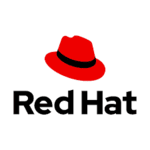Computer Weekly – 17 October 2017: Microsoft CEO Satya Nadella on empathy and innovation
sponsored by TechTarget ComputerWeekly.com
EBOOK:
In this week's Computer Weekly, Microsoft CEO Satya Nadella explains why he has made empathy a key part of technology innovation. We examine the latest news in the ongoing debate over the tax status of IT contractors in the public sector. And we ask if an emphasis on creativity will help attract more young people to work in IT. Read the issue now.
Posted: 08 Feb 2021 | Published: 13 Oct 2017

|

|
|
7 Ways Shop Floor Execution (SFX) Can Help with Lean Manufacturing and Complement ERP Systems
sponsored by Casco Development, Inc.
WHITE PAPER:
Lean manufacturing is a philosophy committed to the total elimination of waste. There are seven types of waste that plague manufacturing. Shop Floor Execution (SFX) can help minimize or eliminate all of them.
Posted: 05 Dec 2008 | Published: 09 Jul 2008

|

|
|
IBM Information Server FastTrack
sponsored by IBM
WHITE PAPER:
This white paper describes how IBM's Information Server FastTrack accelerates the translation of business requirements into data integration projects. Data integration projects require collaboration across analysts, data modelers and developers.
Posted: 13 Aug 2008 | Published: 13 Aug 2008

|

|
|
Computer Weekly – 7 June 2022: Using technology to reinvent shopping
sponsored by TechTarget ComputerWeekly.com
EZINE:
In this week's Computer Weekly, after the pandemic led to a boom in e-commerce, we look at how retailers are turning to tech to revitalise their stores. We examine the issues around using algorithmic automation to manage employees. And we find out how data science is supporting drug discovery at Novartis. Read the issue now.
Posted: 01 Jun 2022 | Published: 07 Jun 2022

|

|
|
Red Hat Continues To Redefine SOA: Simple. Open. Affordable
sponsored by Red Hat
WHITE PAPER:
Despite the significant progress made with open standards in the industry, most SOA platforms are delivered with many proprietary, closed extensions that focus on customer lock-in more than automation of the value chain. Red Hat believes there is a better way. We redefine SOA to be simple, open, and affordable.
Posted: 20 Jul 2009 | Published: 30 Oct 2008

|

|
|
Boeing 787: Global Supply Chain Management Takes Flight
sponsored by E2open
CASE STUDY:
Read this case study to learn how to improve time-to-market and reduce total cost by leveraging your extended supply chain and partner manufacturing resources as a competitive advantage.
Posted: 15 May 2007 | Published: 01 May 2007

|

|
|
Presentation Transcript: Best Practices to Gain Visibility and Control of Your Demand Network
sponsored by E2open
PRESENTATION TRANSCRIPT:
In this presentation transcript of the "Best Practices to Gain visibility and Control of Your Demand Network" webcast E2open and AMR Research will discuss new demand network management trends and technologies that will enable multi-enterprise companies to maximize the potential of their demand networks by providing more visibility and control.
Posted: 03 Jun 2009 | Published: 03 Jun 2009

|

|
|
Reducing the Supply Chain Risk in a Partner Based, Global Manufacturing Environment
sponsored by E2open
WEBCAST:
Access this webcast to learn about expanding global environments & enterprises.
Posted: 15 May 2007 | Premiered: May 1, 2007

|

|
|
Best Practices to Gain Visibility and Control of Your Demand Network
sponsored by E2open
WEBCAST:
This Webcast examines new demand network management trends and technologies that will enable multi-enterprise companies to maximize the potential of their demand networks.
Posted: 05 May 2009 | Premiered: May 21, 2009, 12:00 EDT (16:00 GMT)

|

|
|
SOA Blueprint for Supply Chain Visibility
sponsored by IBM Software Group
WHITE PAPER:
This white paper details how improved supply chain visibility can be attained through use of an SOA.
Posted: 27 Nov 2007 | Published: 01 Aug 2007

|

|